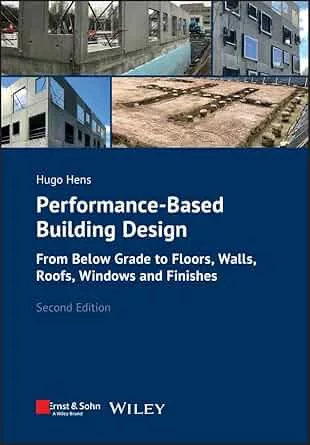Safety Advice: Five Ways to Lower Your EMR
The Experience Modification Rate (X-Mod) is a percentage-based multiplier (pricing mechanism) established by each state’s Workers’ Compensation Insurance Rating Bureau (WCIRB). It’s used to calculate an employer’s workers’ compensation premium based on a number of empirically confusing statistical factors.

The Experience Modification Rate (X-Mod) is a percentage-based multiplier (pricing mechanism) established by each state’s Workers’ Compensation Insurance Rating Bureau (WCIRB). It’s used to calculate an employer’s workers’ compensation premium based on a number of empirically confusing statistical factors, including:
• The employer’s 4-digit workers’ comp classification code established by the National Council on Compensation Insurance (NCCI) (over 6,000 codes listed).
• Total man-hours worked.
• Taxable annual payroll.
• Number of employees’ loss and injury claims for the previous three years.
• Severity of claims.
• Repetition of claims.
An EMR of 1.00 is the national average rate code for an employer’s particular NCCI classification code. If your composite employees’ workers’ comp claims result in an EMR that is less than the national average for your code, then your premium is credited (and you pay less). If your EMR is higher than average, then it your premium is debited (and you pay more). Multiple classifications may be provided for general contractors in construction depending on the number of man-hours per year spent in various trades.
The purpose of the EMR is to provide employers with tangible goal and fiscal incentive to effect a loss-preventative Health and Safety Program (HASP) for their employees to understand and follow. The following are five steps you can perform to reduce your EMR:
1. Institute an Out-of-Service policy immediately:

The Experience Modification Rate (X-Mod) is a percentage-based multiplier (pricing mechanism) established by each state’s Workers’ Compensation Insurance Rating Bureau (WCIRB). It’s used to calculate an employer’s workers’ compensation premium based on a number of empirically confusing statistical factors, including:
• The employer’s 4-digit workers’ comp classification code established by the National Council on Compensation Insurance (NCCI) (over 6,000 codes listed).
• Total man-hours worked.
• Taxable annual payroll.
• Number of employees’ loss and injury claims for the previous three years.
• Severity of claims.
• Repetition of claims.
An EMR of 1.00 is the national average rate code for an employer’s particular NCCI classification code. If your composite employees’ workers’ comp claims result in an EMR that is less than the national average for your code, then your premium is credited (and you pay less). If your EMR is higher than average, then it your premium is debited (and you pay more). Multiple classifications may be provided for general contractors in construction depending on the number of man-hours per year spent in various trades.
The purpose of the EMR is to provide employers with tangible goal and fiscal incentive to effect a loss-preventative Health and Safety Program (HASP) for their employees to understand and follow. The following are five steps you can perform to reduce your EMR:
1. Institute an Out-of-Service policy immediately:
- Put an “Out-of-Service” card and wire-tie in every paycheck.
- Repair/replace defective equipment immediately (without any hesitation or dismissive complaint).
- Make violation of the tag-out policy grounds for immediate dismissal.
- Institute the buddy system: Make every employee responsible for himself or herself and one other person on the job.
- Make each middle manager responsible for his/her crew and one other crew as well.
- Assume the responsibility for listening carefully to everyone.
- Design the HASP by compiling/analyzing all your JSAs.
- Personally hand an individual copy of the HASP to every employee.
- Ask them to edit it and hand them back, and do it every December.
- Train employees on its contents until zero questions are achieved.
- Declare three priorities as “conditions of employment: safety, quality and productivity (in that order).
- Print these priorities on your letterhead and business checks.
- Print these priorities on LARGE company job signs.
- CP can “spend the boss’s money” on material, labor and equipment without asking first.
- Your CPs are literally legal clones of yourself on every jobsite. Trust them with the lives they are dedicated to protect and the future of your company.
- Open your books and review their jobs in less than 15 minutes.
- Make “safety first” a condition of employment (last warning).
- Invite everyone to stand up and “speak their piece.” Listen carefully.
- Take notes. You’re also paying for what’s above their shoulders.
- A profit-sharing plan will make your tools, equipment and workforce live longer. I guarantee it.
Looking for a reprint of this article?
From high-res PDFs to custom plaques, order your copy today!




